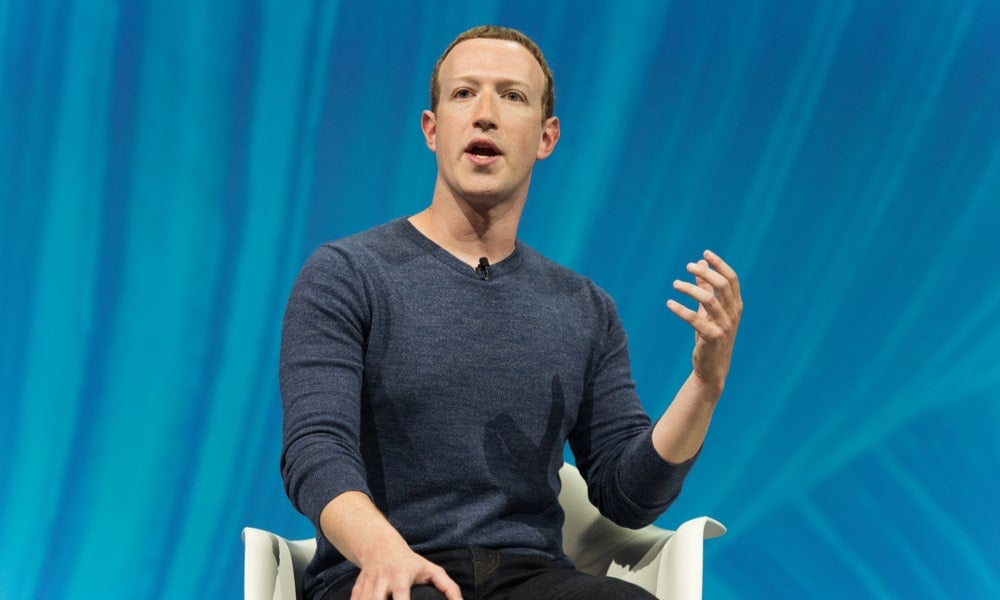Can you "die" in real life if the metaverse bans you?
Four important elements are required in order for the metaverse to become a decentralised creators’ economy, writes UNSW Business School's Eric Lim
There is a meme going around the internet where Meta (formerly Facebook) CEO Mark Zuckerberg is purported to have said “if you die in the metaverse, you die in real life” when he was introducing Meta. This meme probably resonated with a lot of people given Facebook’s less-than-stellar’s track record of exploiting their users’ personal and social data for advertising revenue.
This meme is an indication of two things: firstly, digital natives are well aware that the metaverse is a natural progression of where we are currently headed with digital technology. And secondly, digital natives are conscious of the inevitable dystopian form the metaverse will take on if it is controlled by a tech company like Meta or any of the FAANG (or now MAANG? Meta, Amazon, Apple, Netflix and Google (owned by Alphabet)) companies.
Of course, such suppositions come from the assumption that the metaverse is actually a “place”, albeit a hybrid of the virtual and the real. However, this is where I think many people are mistaken. The metaverse is not a place. It is the next economic engine for the global economy that will drive a new wave of economic activities and value. The metaverse will be ready for realisation, and is a matter of when and not where.

To create this economic engine in the form of the metaverse, there are four elements that are necessary:
- The ability to move economic value across space and time freely without middlemen of necessity
- The ability to tokenise value and assets of both physical and virtual worlds and to stake ownership on them in a way that is verifiable and enforceable
- The ability to own and protect one’s identity with self-sovereign data across time and space, and
- The ability to predetermine and enforce rules of engagement prior to collaboration among different entities within the metaverse.
Facebook sets itself up as the metaverse
With the above, it is easy to understand why Facebook had its sight set on the metaverse for some time. By default, it has already covered the element of identity because it was originally set up as a business to own and monetise its users’ identities. It is progressing with the design of its own private digital currency (Diem) that will be native to the meta platform. Also, because Meta is a centralised entity, it will by default be able to determine the rules by which its users are able to tokenise their assets and stake ownership of them.
Read more: Decentralised identity: first step towards banking the unbanked
Lastly, like all centralised platforms, it will be the sole decision-maker to determine and enforce all rules of engagement among entities that wish to collaborate economically within the metaverse.
By logically extending how Meta is progressing towards creating and designing how these four major elements would come together to define the metaverse, it should be easy to recognise why the meme is rightly a foreshadowing of what one could expect in Mark Zuckerberg’s metaverse.
In this metaverse, when all major tools of economic productivity are owned and controlled by Meta, it follows that if it chooses to deny you access to the metaverse, you would indeed die in real life! You will have no identity, no means of ownership of your assets, no access to the value you have accrued, and no means to economically collaborate with anyone in the metaverse because you have been de-platformed by Meta.

How you can "die" in real life if the metaverse bans you
You might think: “Hang on, how could that be possible? That would be unthinkable!” But if you recall how a sitting US president could be banned from Facebook, you better believe that you could be easily banned by Meta as well.
In fact, it has already begun when an Australian artist’s Instagram handle vanished after working for nearly a decade to build her own brand. What was her “crime”? Her Instagram handle was “Metaverse”. She has been de-platformed and her economic productivity denied and unrecognised by a power that owes no allegiance to anything but itself. These fears I have about Meta and Mark Zuckerberg’s vision of the metaverse are why I am a strong proponent of the open-sourced and decentralised philosophy of the cryptocurrency industry.
Read more: Why is cryptocurrency so threatening for some governments?
This is the premise of why I wrote about the desirability of cryptocurrencies to be decentralised and not controlled by a centralised entity. This will allow for unfettered flow of economic value across the metaverse without the need for middlemen of necessity. To allow for the tokenisation of value and staking of ownership on assets within the metaverse and the creation of self-sovereign identity and ownership of one’s own data, as well as the self-determination of rules of engagement among entities within the metaverse, we can rely on the blockchain technology, with its open source, decentralised and immutable characteristics.
With these elements in place, we can create a metaverse that is truly conducive to support a decentralised creator’s economy where tools of economic productivity are fully accessible to everyone.
Dr. Eric Lim is a Senior Lecturer in the School of Information Systems and Technology Management (ISTM) at UNSW Business School. His research interests focus on exploring the impact of digitalisation on individuals, organisations and the broader society, with a focus on the design and innovation of digital services across a variety of contexts such as crowd platforms, fintech and healthcare. For more information please contact Dr Lim directly.
